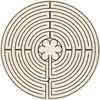Psychotherapies
One day as I walked a new client to the door, she stopped me and with earnest concern asked, "how do you listen to peoples' problems everyday?" Without skipping a beat, I replied, "if I heard problems, I couldn't do it. I hear opportunities." Traditional psychotherapy used to involve a client talking and a therapist listening, the two forming a therapeutic alliance, a working relationship, in service to the client's goals. Today, there are so many more tools we can offer clients as they undertake the work of improving their lives.
EMDR
In the last two decades, Eye-Movement-Desensitization-and-Reprocessing (EMDR) has taken its place in my practice as a major agent of change. This approach is completely client-centered; each person having his or her own unique experience. Discovered in 1987 by Francine Shapiro, PhD, early studies demonstrated that EMDR successfully brought relief to individuals who were caught in the cycle of reliving a traumatic event over and over.
Often when something traumatic happens, it seems to get locked in the nervous system with the original picture, sounds, thoughts, feelings, and so on. Since the experience is locked there, it continues to be triggered whenever a reminder comes up. It can be the basis for a lot of negative emotions, such as fear and helplessness, that we can't seem to control. These are really the emotions connected with the old experience that are being triggered. (Shapiro, 1995)
While much of the original EMDR research focused on healing from trauma, this therapeutic tool is now being applied to a wide range of issues from the addictions to performance enhancement. In addition to using EMDR to resolve troubling memories, we use it to strengthen resources and coping skills. Learn more at www.emdr.org.
Advanced Integrative Therapy (AIT)
I was introduced to AIT after several years of using EMDR. I love them both, finding that these two modalities seem to fit together quite seamlessly in my working with clients. One of the benefits of AIT is that clients can learn to integrate these approaches and techniques into their ongoing lives as self-care and self-development practices.
Advanced Integrative Therapy (AIT) -- formerly known as Seemorg Matrix Work -- is an inspiring transpersonal energy psychotherapy that works with the major energy centers of the body. Developed by Asha Clinton, PhD, MSW in the late 1990's, this comprehensive approach synthesizes traditional psychodynamic approaches with traumatology, energy psychology, energy healing, as well as teachings and practices from a wide range of spiritual traditions. We identify and resolve blocks to healing; eliminate negative emotions resulting from traumatic events and longstanding traumatic patterns; resolve destructive desires, fantasies and compulsions; and restructure related patterns of core beliefs about self, others, life and the world. We instill and cultivate the positive qualities that support the transformation of character structure, cultivating authentic presence and spiritual development. Visit www.aitherapy.org to learn more.
Windhorse Wisdom
Windhorse Wisdom is my registered service-mark for equine-facilitated-experiential-learning (EFEL) and equine-facilitated-psychotherapy (EFP). Working with the horses can create a new level of personal and social awareness, develop your emotional fitness, mentor you in improving your relationships, help you reconnect to the wisdom of embodied awareness -- your intuition -- and assist in evolving your consciousness. Horses are dynamic living biofeedback systems. No previous horse experience is required. To learn more visit www.windhorsewisdom.com.
Many clients will elect to attend the Introducing Windhorse Wisdom workshop or will schedule individual sessions to work with the horses as a part of an ongoing therapy. However, being in therapy with me is not required. Some folks are just curious. Others may have read The Tao of Equus by Linda Kohanov, or other books about this transformational modality. If the horses are calling, consider allowing them to nudge you awake.
HeartMath
HeartMath is a form of Heart Rate Variability (HRV) biofeedback that allows you to practice maintaining a state of physiological coherence -- an increased synchronization between the sympathetic and parasympathetic branches of the autonomic nervous system -- benefitting neural, hormonal and biochemical systems. It is essential for each of us to cultivate reliable stress management skills, increasing our resilience in the face of day-to-day stressors, as well as unforseen life challenges. You can visit www.heartmath.com to learn more about their research.

